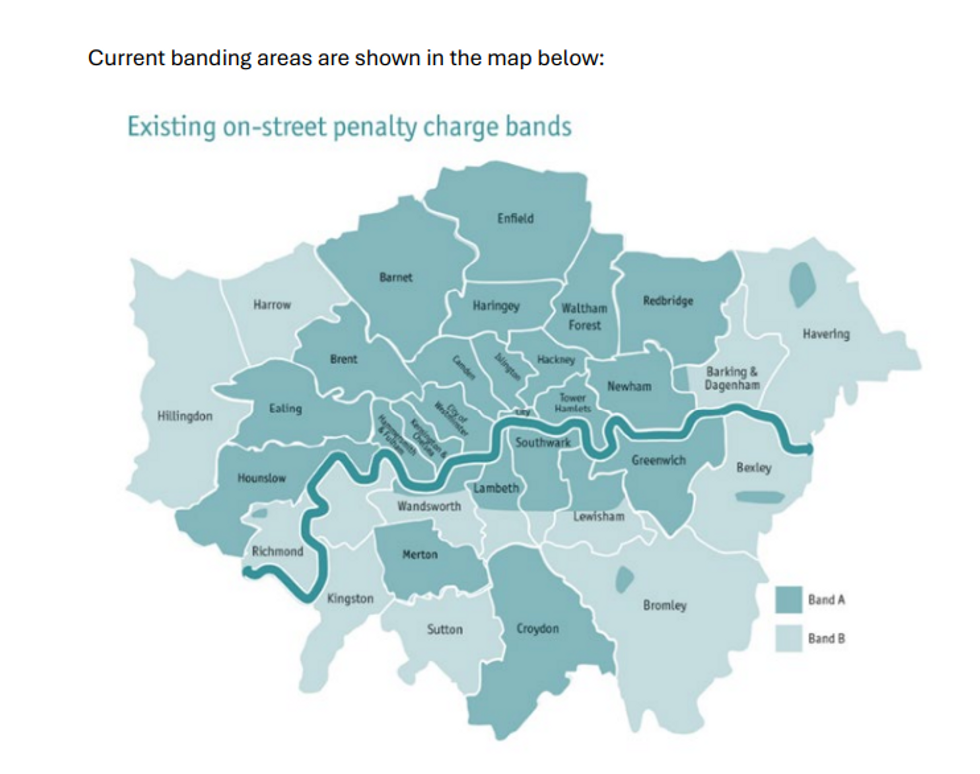Motorists could see parking fines jump to £160 as 'tenfold' rise in offences prompts calls for change

The British Parking Association has called on the Government to increase penalties for parking across the UK
Don't Miss
Most Read
Latest
The number of traffic violations in the UK has risen to unprecedented levels due to drivers refusing to pay for parking and following the rules in place.
It comes after research revealed a sharp rise in drivers parking poorly on residential streets as well as on yellow lines and not paying for parking altogether.
Over the past year alone, authorities have seen an increase of between 24.7 per cent and 76 per cent increase in vehicles parking in residential zones without valid permits.
**ARE YOU READING THIS ON OUR APP? DOWNLOAD NOW FOR THE BEST GB NEWS EXPERIENCE**
The data also recorded a rise of between 9.8 per cent and 24 per cent in cars parked illegally on yellow lines, which can result in a penalty being issued.

The BPA has called on Labour to increase parking fines across the UK
|GETTY
Worryingly, there has been a 30 per cent increase in vehicles with three or more unpaid Penalty Charge Notices.
One council reported a case where a driver of a gold Range Rover "openly admitted" to preferring to park in loading bays, despite knowing they would be fined, because it was "more convenient" than using a car park.
This behaviour has been seen across several authorities in the UK, including Newcastle, Cornwall, Chelmsford and Gloucestershire.
A spokesperson for the British Parking Association told GB News: "This summer has shown that the current level of the Penalty Charge Notice is not enough to deter drivers from breaking the rules."
 Drivers were issued tickets for parking on double yellow lines | GETTY
Drivers were issued tickets for parking on double yellow lines | GETTYThe association warned that low penalties can lead to a "tenfold increase" in non-compliance, an issue that is reportedly "even worse in busy areas such as tourist hotspots and during major events".
In response to the report, the BPA has now urged the Government to raise PCN levels in England, outside London, and Wales and give local authorities the power to increase charges, as has already been allowed in Scotland and London.
In London and Scotland, parking fines were split between Band A, which was the higher tariffs and Band B, the lower tariffs.
The bands reflect the different penalties drivers could be hit with for parking infringements, with offences in Band A resulting in higher parking tickets.
LATEST DEVELOPMENTS:
Earlier this year, London Mayor Sadiq Khan approved plans to move all parking penalties in the capital to the higher band as the default amount to crack down on parking issues.
Since April, London parking penalties have increased to £110 for less serious offences and £160 for more serious offences, with a 50 per cent discount applied if the ticket is paid within 14 days.
This marked the first increase in parking penalties in more than 14 years, with the London Council explaining that "there is evidence of a link between failure to follow the rules and PCNs being seen as a 'financial' deterrent by motorists".
The authority added that the boroughs manage 95 per cent of the road network in London, and that due to roughly two billion car journeys made each year, parking and traffic management are "essential for maintaining the movement of traffic and safety of all road users".

Parking rates were split into two rates, with Band A charging more for traffic infringements
| LONDON COUNCILSThe authority explained that due to the inflation on penalty charge levels, this has meant a reduction in the "real value" of parking charges and additional fees over time.
The costs to boroughs for providing a parking and traffic management service have also taken a hit and increased significantly since 2011, with the higher penalties hoping to reduce some of this burden.
Stephen Boon, London Councils' chief operating officer, shared: "Through using PCNs to manage parking and traffic, boroughs can reduce congestion and incentivise road users to drive and park safely, protect access, crossing and junctions, and increase active travel such as walking and cycling.
"The vast majority of motorists who abide by the rules will be unaffected by these changes. Any net revenue raised from PCNs is reinvested in transport schemes, including paying for the Freedom Pass, providing free public transport for older and disabled Londoners."










